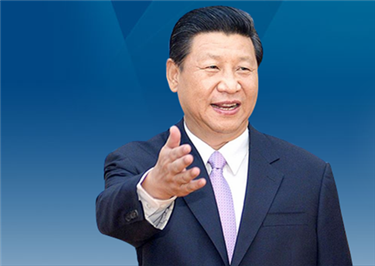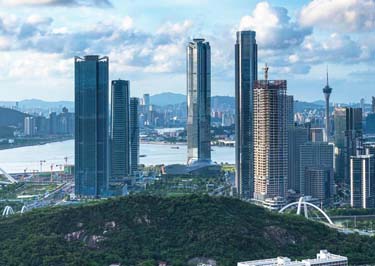Tong King-sing (Tang Tingshu, or Tang Jingxing)
3
Appointed managing director of the China Merchants Steam Navigation Co, the first bureaucratically run large business during the Self-Strengthening Reformation (Westernization Movement), in 1872, Tong King-sing restructured it aggressively in Shanghai.
With the concept of "Operate Through Western Management," he recruited to his management board compradors who had worked in foreign companies.
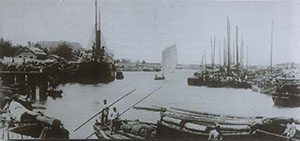
Jardine's Kerosine Wharf in Tientsin (Tianjin) [Selected from Special 150th Anniversary Issue of Jardine Matheson & Co]
He also took the lead in adopting the public-holding system through which the capital value of the company increased by 150 per cent in a year. With most of the Yangtze River and coastal shipping markets at hand, the company branched out in Philippines and Thailand and expanded business to Britain, Japan, Singapore, Hawaii, and the US mainland. It was the biggest shipping business at the time.
The Qing government established the Shanghai Foreign Affairs Bureau in late 19th century when foreign businesses and merchants proliferated there. Tong King-sing, serving as vice director, contributed to the seabed cable installation between Fukien (Fujian) Province and Taiwan and ended the unsettled cases of foreign ships in the Taiwan Straits.
Keenly skilled in dealing with foreign affairs, Tong King-sing was highly admired by Qing government officials.
4
Coal was indispensable when the steam engine prevailed.
In 1876, 44-year-old Tong Kings-sing charted a blueprint for a coal mine and investigated its feasibility in Tangshan City. The Qing government undertook his proposal and founded the Kaiping Mines, where Tong worked for 15 years until he died there in 1892.
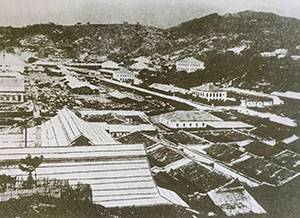
Kaiping Mines in the Qing Dynasty [Selected from Special 120th Anniversary Issue of Kailuan Coal Mine]
Tong raised 1 million silver taels through public offering. He imported advanced equipment and recruited foreign engineers and taskmasters. Kaiping Mines, which is today's Kailuan Coal Mine, had annual turnover of 780,000 tons with five-fold assets by the end of 19th century. The coal mine still serves as the largest base of coal industries in China.
5
Tong King-sing had frequently returned to his hometown since the age of 50.
He built a dock at Tangjia Bay and opened a Canton-Hong Kong steamer route. Dr Sun Yat-sen deigned to build the dock into a port in his General Plan for the Country 37 years later -- 27 years after Tong died.
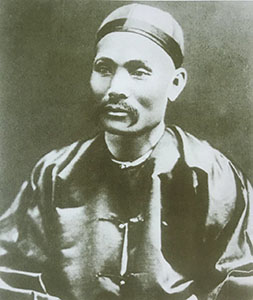
Tong King-sing [File photo]
Tong's dream to build a commercial port in Zhuhai has come true since Reform & Opening Up and the city was designated as a special economic zone in the 1980s.

